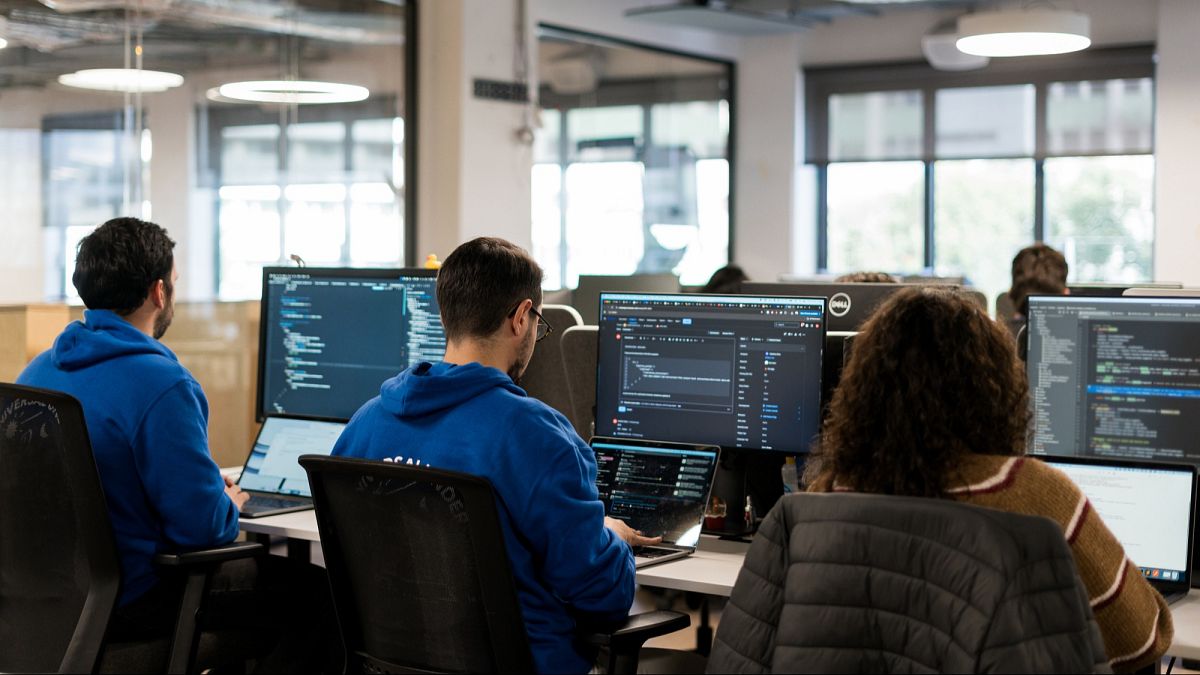Published on
As European governments rush to invest in artificial intelligence (AI), hoping to support European champions like Mistral, a new report warns they may be playing into the hands of Big Tech.
Research published this Monday by the Dutch non-profit SOMO shows that the world’s leading AI start-ups, including OpenAI, Anthropic and Mistral, are deeply dependent on a small group of powerful US tech companies for the hardware, infrastructure and platforms they need to operate.
“On the surface, these start-ups look like fresh challengers,” said Margarida Silva, author of the report. “But scratch a little deeper and you’ll see they’re built on foundations laid by Nvidia, Amazon, Google and Microsoft.”
Start-ups dependency of Big Tech
Training advanced AI models requires huge computing power, most of which runs on Nvidia’s specialised chips. According to the report, 11 out of the 12 top generative AI start-ups rely on Nvidia’s hardware to build and run their systems.
The chipmaker now dominates the global market, not just because of its hardware but also due to its proprietary software, which makes it difficult for competitors to catch up.
Start-ups don’t just need chips, they need access to massive cloud infrastructure to train and deploy their models. SOMO found that 10 of the 12 firms in its study rely on cloud services provided by Microsoft, Amazon or Google.
In return for access to this computing power, Big Tech companies often strike deals with start-ups that give them exclusive rights to distribute their AI models. Microsoft, for instance, invested heavily in French start-up Mistral and now has first access to its models through the Azure cloud.
This move raised strong critics in the European Parliament as the EU Act just adopted sought to buffer European players from dependency on Big Tech.
Gatekeepers to the market
Even when it comes to selling AI products, SOMO said that Big Tech companies are in control. Nine of the 12 start-ups analysed host their models on platforms run by Amazon, Microsoft or Google, making them the main gateways to businesses and public bodies that want to use AI.
An example is the European Parliament, which chose the Claude model developed by Anthropic to manage its digital archives. The choice was limited to models available through Amazon Web Services, which holds an EU contract.
AI sovereignty in question
The report raises serious questions about Europe’s strategy to compete in the so-called “AI race”. While the EU and several member states are investing billions to develop local AI capabilities, much of that support could end up reinforcing US dominance.
“Europe wants to build its own AI capacity, but the foundations are still controlled by a handful of American companies,” Silva said.
SOMO is urging EU and national competition authorities to act quickly by investigating cloud contracts, limiting market concentration, and ensuring that switching providers is possible. Without intervention, the report warns, the AI industry could follow the same path as previous tech shifts, where a few companies became gatekeepers for entire markets.
